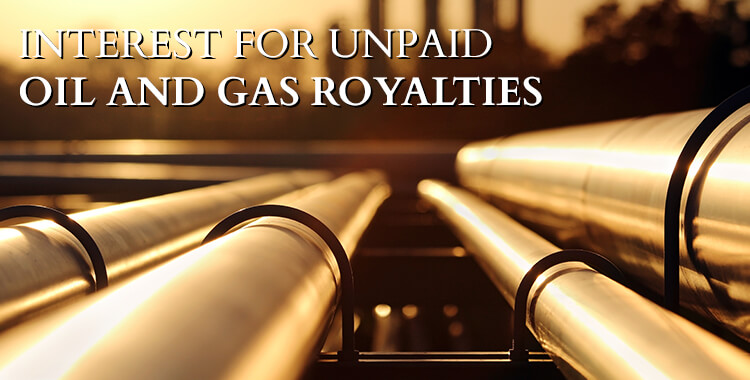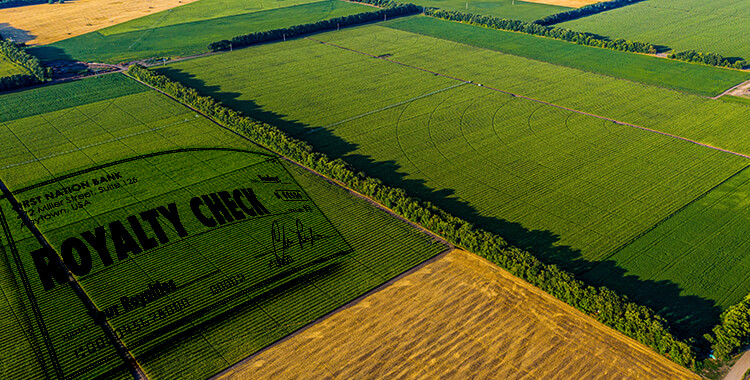
For years and years, I’ve received phone calls from local Ohio Valley landowners in West Virginia who believe they should be getting paid royalties for their oil and gas. When that happens, I research the property and determine whether there is an existing oil and gas lease, whether it has been pooled or unitized into a production unit, whether there is a producing gas well, etc. This research is important in order to start putting the pieces together.
Putting the Puzzle Together

Sometimes, I discover that the landowner signed an oil and gas lease but the lease was “defected” because it did not pass title. At that point, I can perform other research to determine whether there was a valid reason for doing so. Sometimes, I discover that a pool or unit just hasn’t been formed or that, while one has, a well has not been drilled for it. At that point, I can provide the client with a general estimate as to when they can expect such development. However, in some instances, I have discovered that there is a valid oil and gas lease for the client, the property has been included in a pool or unit, and there is an active, producing well. Absent title issues, the client should be receiving oil and gas royalties. What to do then?
Determining the Reason for Unpaid Oil and Gas Royalties
When I come across this situation, I contact the oil and gas producer and seek an explanation. Sometimes, they explain that there is a title issue that needs resolved through a quiet title action. However, sometimes they explain that they simply have not done so without excuse or because of some kind of error on their end. They offer to cut a check for the oil and gas royalties for all missed payments and provide royalty statements.

Prior to 2018, that was about all I would be able to achieve on behalf of my clients. They received their oil and gas royalties, and, because they should have been receiving them already, I did not charge a fee. However, with the passing of W.Va. Code § 37C-1-3, oil and gas producers must now pay interest for unpaid royalties under certain circumstances.
Interest on Unpaid Royalties under W.Va. Code § 37C-1-3
So, how does the oil and gas royalty interest law in West Virginia work? The oil and gas producer is required to pay royalties to the mineral owner within 120 days from the first sale of any oil, gas, or other product (like condensates, natural gas liquids, etc.). For each subsequent sale of any oil, gas, or other product, the oil and gas producer is required to pay royalties within 60 days of any sale.

If the oil and gas company fails to pay within these timeframes, the law states that such failure will result in a “mandatory additional payment of an interest penalty to be set at the prime rate plus an additional two percent until such payment is made, to be compounded quarterly.” In layman’s terms, if oil and gas royalties are not timely paid, the oil and gas company must pay interest calculated at the prime rate plus 2%, to be compounded quarterly. As of the date of this blog, the prime rate is 3.25%. With the additional 2% added on, an oil and gas producer would owe interest calculated at 5.25%. With it being compounded quarterly, the interest owed can really add up! This is really where I can help my clients obtain compensation due to the “error” by the oil and gas company.
Exceptions to the Unpaid Royalty Interest Law
W.Va. Code § 37C-1-3 contains two exceptions under which the oil and gas company would not owe interest on royalties. First, the oil and gas producer does not owe interest on royalties if there is a legitimate title dispute regarding oil and gas mineral ownership or if they are unable to locate the mineral owner(s). Second, the law only applies to royalties owed for production from “horizontal wells,” i.e. fracking and Marcellus and Utica shale drilling. If either of these exceptions apply, interest on unpaid oil and gas royalties is not owed.
The Royalty Interest Law in Practice

I’m writing this blog now because only recently have I been able to use W.Va. Code § 37C-1-3 on behalf of my oil and gas clients. Through work on other matters, I have discovered that some of my clients should have received oil and gas royalty payments from Stone Energy and/or EQT, involving the Tracy A Unit, Tracy B Unit, Conley A Unit, Conley B Unit, Martin A Unit, and Martin B Unit. I contacted EQT to secure payment for these oil and gas royalties and was able to obtain oil and gas royalty interest payments for these clients—tens of thousands of dollars.
GKT Local Oil and Gas Attorney
If you believe you should be receiving oil and gas royalties but are not, call GKT today at (304) 845-9750 to speak with me or live chat 24/7 with a representative at GKT.com. I’d be happy to schedule a free, no-obligation consultation at your convenience. I can help determine whether you should be receiving royalties, and, if you’re owed interest, I can help secure that payment for you.


